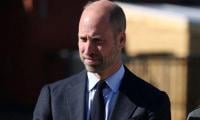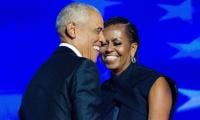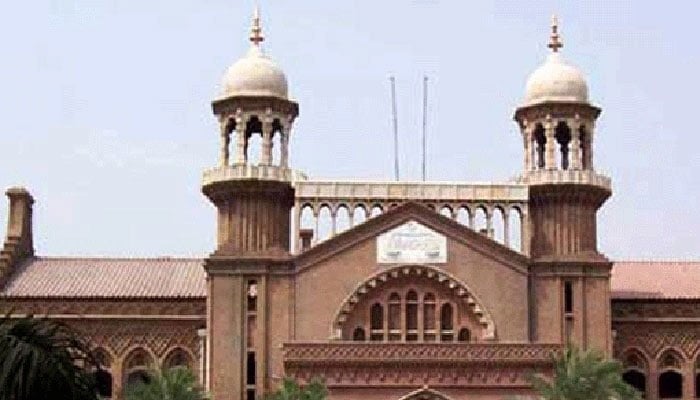LHC dismisses pleas against levy of super tax
Lahore High Court on Tuesday dismissed a set of petitions against the levy of a super tax for the year 2022
LAHORE: The Lahore High Court on Tuesday dismissed a set of petitions against the levy of a super tax for the year 2022.
However, the court struck down a proviso added to the Income Tax Ordinance 2001 to create sub-classification in businesses for being discriminatory.
Lahore High Court Justice Jawad Hassan passed the judgment on hundreds of petitions filed by different industries challenging the imposition of super tax with retrospective effect under Section 4C of the income tax ordinance.
The petitioners had also challenged the vires of the First Proviso to Division IIB of Part I of the First Schedule of the income tax ordinance, introduced through the Finance Act, 2022.
The counsel for the petitioners mainly argued that the petitioners’ company was a limited company with a listed stock exchange, its special year had already ended in December 2021, its AGM was held in April 2022 and profit was distributed to all the shareholders in May 2022. Therefore, the super tax imposed through Section 4C of the ordinance was not applicable because it was a past and closed transaction.
He argued that the definition of “income” in Section 4C(2) of the ordinance excluded the adjustments from current year revenue on account of the brought forward depreciation, business losses and amortisation, and for the determination of the same, the petitioners had already acted upon it at the close of the tax year 2022.
A counsel for the Federal Board of Revenue (FBR) argued that the petitioners were liable to pay the tax under Section 4C and could not take advantage of the benefit granted to them under Section 74 of the ordinance. He pointed out that many petitioners had adopted a special tax year from January 1 to December 31, and mere objecting to the applicability of Section 4C based on the doctrine of past and closed transactions was of no avail as payments of dividends and purported investments did not constitute events that render the finalisation of accounts.
Therefore, he said, the reliance on the entire doctrine of past and closed transactions was misplaced and had wrongly been stretched by many petitioners just to obtain an exemption from their tax obligations.
Justice Hassan partially allowed the petitions to the extent of First Proviso to Division IIB of Part I of the First Schedule of the ordinance. The judge observed that the impugned proviso created a further sub-classification as the persons engaged in the businesses of airlines, automobiles, beverages, cement, chemicals, cigarette and tobacco, fertilisers, iron and steel, LNG terminal, oil marketing, oil refining, petroleum and gas exploration and production, pharmaceuticals, sugar, and textiles were held liable to pay super tax at the rate of 10 percent where the income exceeds Rs300 million, which, of course, is more than the double rate as compared to column No.5 of Division IIB of Part I of the First Schedule.
Therefore, the judge found the proviso prima facie discriminatory and noted that counsel for the FBR and other respondents remained unable to demonstrate any intelligible difference therein, having a rational nexus with the object of classification.
The judge declared the impugned first proviso discriminatory, reducing the rate of super tax to four percent from 10 percent. “The rest of the prayers made in the petitions are declined as valid,” the judge concluded.
-
 Vertical Tabs Coming To Google Chrome
Vertical Tabs Coming To Google Chrome -
 Jane Seymour Reveals THIS Beloved Romance Was 'worst-reviewed' Movie Ever
Jane Seymour Reveals THIS Beloved Romance Was 'worst-reviewed' Movie Ever -
 European Leaders Slam Trump’s Tariff Threat Over Greenland As ‘unacceptable’
European Leaders Slam Trump’s Tariff Threat Over Greenland As ‘unacceptable’ -
 Princess Eugenie Leaves Father Andrew 'devastated' With Big Step: 't's Brooklyn Beckham Level'
Princess Eugenie Leaves Father Andrew 'devastated' With Big Step: 't's Brooklyn Beckham Level' -
 Nova Scotia Snow Storm Warning Issued As Heavy Snow Moves In
Nova Scotia Snow Storm Warning Issued As Heavy Snow Moves In -
 Vancouver Canucks 2025-26 Season: Adam Foote’s Future Under Early Scrutiny
Vancouver Canucks 2025-26 Season: Adam Foote’s Future Under Early Scrutiny -
 Gabriel Diallo Vs Alexander Zverev: Rising Canadian Eyes Major Upset Opportunity
Gabriel Diallo Vs Alexander Zverev: Rising Canadian Eyes Major Upset Opportunity -
 Bo Nix Injury Update: Broncos Quarterback Fractures Ankle Against Bills
Bo Nix Injury Update: Broncos Quarterback Fractures Ankle Against Bills -
 Oilers Vs Canucks: Why Edmonton Is Without Leon Draisaitl
Oilers Vs Canucks: Why Edmonton Is Without Leon Draisaitl -
 49ers Crushed As Kenneth Walker III Leads Seahawks To 41-6 Win
49ers Crushed As Kenneth Walker III Leads Seahawks To 41-6 Win -
 Canadiens Star Lane Hutson Makes History With 100th NHL Assist
Canadiens Star Lane Hutson Makes History With 100th NHL Assist -
 Bridgerton’s Claudia Jessie Says Her Real-life Style Is Nothing Like Eloise’s
Bridgerton’s Claudia Jessie Says Her Real-life Style Is Nothing Like Eloise’s -
 Prince William Barred From Riding E-scooter At His Own Home!
Prince William Barred From Riding E-scooter At His Own Home! -
 Prince William New PR Step Is Not 'shrewed Move,' Says Expert
Prince William New PR Step Is Not 'shrewed Move,' Says Expert -
 Barack Obama Honours Michelle Obama On Her 62nd Birthday
Barack Obama Honours Michelle Obama On Her 62nd Birthday -
 Why Kate Middleton Runs Away From 'some Royal Relatives'
Why Kate Middleton Runs Away From 'some Royal Relatives'




